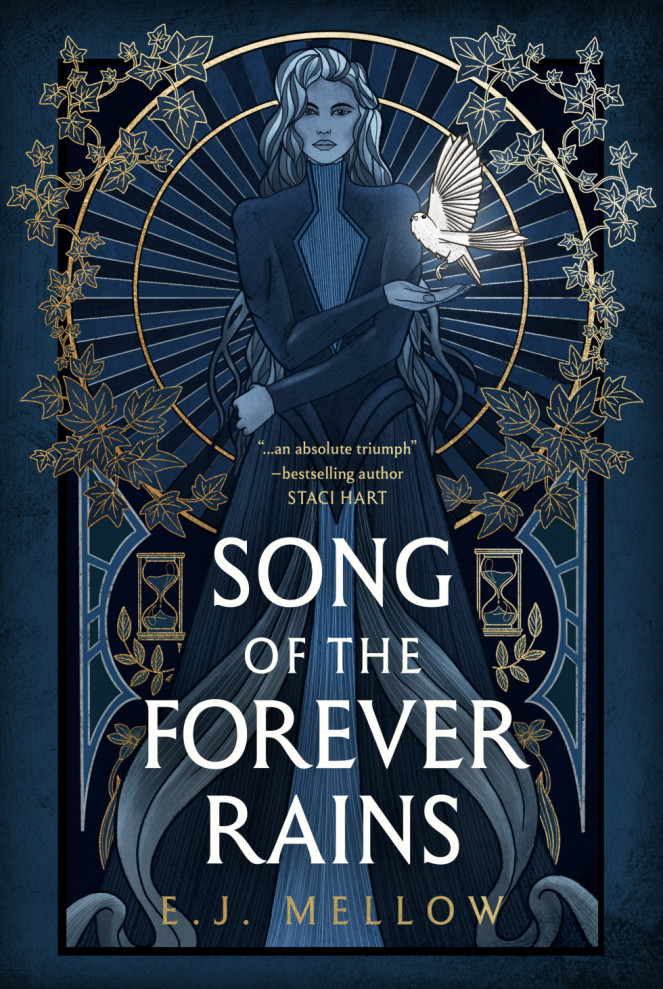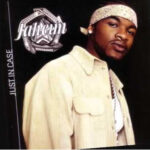 Book Review : Song of the Forever Rains
Book Review : Song of the Forever Rains
E.J. Mellow’s Song of the Forever Rains promised a dark romantic fantasy, a tale spun from the whispers of the Thief Kingdom and the potent magic of a songstress. Drawn in by the allure of its synopsis, I anticipated a captivating read, something to break up the epic journey of The Wheel of Time. However, while the novel offered moments of enjoyable banter and a palpable connection between its core sisterly trio, Song of the Forever Rains ultimately felt like a melody that fades too quickly, lacking the depth and resonance to become a truly Forever Song in the fantasy genre. Despite its initial intrigue, the substance of the story left much to be desired. The magic system felt underdeveloped, the world-building remained murky, and inconsistencies peppered the narrative, preventing it from fully realizing its potential. Moreover, the novel struggles to deliver on the very promises laid out in its enticing synopsis.
The narrative centers around Larkyra, the youngest of the Mousai, three sisters wielding formidable magic and serving as key figures in the enigmatic Thief Kingdom. Larkyra possesses a siren-like power, her voice capable of destruction. We learn of her rigorous emotional control, necessary to prevent accidental devastation through her sonic abilities. While flashbacks hint at Larkyra’s fear of her powers, linking them to her mother’s death during childbirth, this internal conflict feels somewhat at odds with her eagerness to utilize her magic. The novel shows her actively seeking opportunities to employ her abilities from the outset, diminishing the impact of her supposed fear and internal struggle.
Larkyra’s mission begins when she is tasked with investigating Duke Lachlan, suspected of exploiting a dangerous drug originating from the Thief Kingdom. Posing as a potential bride for the corrupt Duke, Larkyra ventures into his estate. There, she encounters Lord Darius Mekenna, the Duke’s mistreated stepson and rightful heir. As Larkyra and Darius navigate the Duke’s treacherous court and their own secret agendas, a romantic spark ignites between them. Adding to the narrative complexities, Darius, despite enduring a history of abuse that makes physical touch a trigger, reveals to Larkyra that he is not a virgin. This revelation, without further exploration or explanation of how intimacy is possible for him given his trauma, feels jarring and underdeveloped.
The romance itself, while gradually developed, feels somewhat manufactured. The banter between Larkyra and Darius, while occasionally charming, echoes the familiar dynamic between Larkyra and her sisters, lacking a unique spark. While opposites may attract, Song of the Forever Rains doesn’t convincingly portray the depth of their connection. Readers drawn primarily for a compelling romance might find this aspect of the novel underwhelming.
Beyond the romantic subplot, the world-building and magic system present further points of confusion. The nature and location of the Thief Kingdom, and its relationship to Jhabari, Larkyra’s home nation, remain unclear. The novel introduces “phorria,” a drug that allows non-magical individuals to temporarily absorb magic. However, inconsistencies arise when Darius’s stepfather, a phorria addict, exhibits extraordinary magical abilities, far exceeding the limited magical retention described earlier in the book. He wields shadow tentacles and can control entire households through trance magic, a significant deviation from the established limitations of phorria use.
Similarly, the narrative mentions the Duke’s omnipresent servants, supposedly acting as his eyes and ears. Yet, this surveillance network never poses a tangible threat to Larkyra or Darius. They move freely throughout the mansion and grounds without consequence. The servants appear indifferent to their master, offering no real obstacle to the protagonists’ investigations. The only instance of mild interference comes from Larkyra’s lady’s maid, concerned about propriety rather than reporting to the Duke, highlighting a disconnect between the stated surveillance and its actual impact on the plot.
“They were an odd trio, each two years apart but all with births on the same day. Achak began to wonder if such a quirk had something to do with their gifts. A thread that tied them together. For their powers promised greatness. But in devastation or salvation? The question remained.”
These inconsistencies and vague explanations contribute to a lack of genuine tension throughout Song of the Forever Rains. Despite the narrative hinting at potential dangers – Larkyra losing control of her powers, Darius harboring ulterior motives, or failure to overthrow the Duke – a sense of inevitable happy resolution pervades the story. While predictable happy endings can be enjoyable, in this case, it diminishes the excitement and stakes that could have elevated the narrative.
One of the strongest elements of Song of the Forever Rains is undoubtedly the portrayal of the sisterly bond between Larkyra and her siblings. Mellow effectively establishes their dynamic and rapport through both witty verbal exchanges and physical sparring. Although the other sisters remain somewhat underdeveloped as individual characters, their collective presence and shared connection with Larkyra are vividly rendered. However, the sisters’ seemingly unwavering adoration for their father, even after a flashback depicting him instructing Larkyra to kill, feels somewhat perplexing and undermines the complexity of their family dynamics.
While the sisterly interactions feel natural, other aspects of the writing style occasionally detract from the reading experience. Certain phrases and dialogues feel stilted and unnatural, pulling the reader out of the narrative. Exchanges like the following between Larkyra and her father exemplify this:
“I’m glad none of your spirit has dulled after your time away.”
“If anything”—Larkyra settled into his arms—“my time away has only made me shine brighter.”
Or
“The love she had for the man before her was so consuming she truly felt she might burst into flames if no one spoke this very moment. “Larkyra.” His voice was a deep rumble of stampeding beasts. “My darling girl.” Pushing away from his desk, he opened his arms, allowing her to run into them. Ensconced in his massive embrace, Larkyra cherished the smell of home on her father, of honeysuckles in sunshine.”
These instances of overly dramatic or unusual phrasing disrupt immersion and feel out of place within the narrative. Such stylistic choices are scattered throughout Song of the Forever Rains.
Considering the inconsistencies and stylistic quirks, it is surprising that Song of the Forever Rains is not a debut novel. However, if one can overlook these shortcomings, it serves as a light fantasy read with a touch of romance. While I might consider reading further installments in the trilogy as palate cleansers between more demanding reads, Song of the Forever Rains lacks the staying power to become a truly memorable or essential addition to the fantasy genre. It’s unlikely to be a forever song that resonates deeply or lingers long after the final page is turned.

